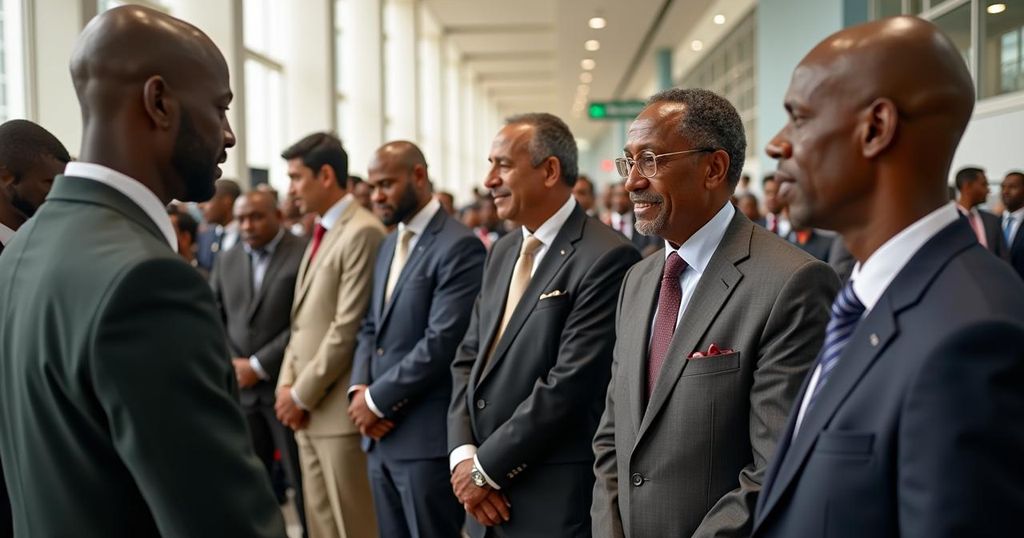The African Union delegation, led by Mauritanian President Mohamed Ould Ghazouani, left Libya after less than a day without engaging the eastern authorities, who rejected a meeting following a controversial request from Prime Minister Osama Hammad regarding Libyan assets in Mauritania.
The delegation from the African Union, led by Mauritanian President and current Chairman of the African Union, Mohamed Ould Ghazouani, concluded their visit to Libya after less than a day without engaging with the eastern region of the country. Political analyst Salah Al-Bakoush indicated that the eastern authorities declined to meet with the delegation following a rejected request from Osama Hammad, Prime Minister of the eastern parallel government. Hammad had solicited support from Nouakchott to access certain Libyan financial assets in Mauritania, specifically mentioning the Chinguitty Bank, formerly known as the Libyan Bank in Nouakchott. Furthermore, Al-Bakoush reported that Hammad had proposed to Mauritania that he could facilitate an intervention with the Wagner forces, which reportedly cross into Mauritanian territory and are believed to harbor rebel leaders from Mali. Hammad’s controversial visit to Mauritania in late August was portrayed by pro-government media as an official meeting; however, it prompted a clarification from the Mauritanian Embassy in Tripoli. According to the embassy’s statement, “The meeting of the President of Mauritania with the Libyan guest took place at the request of the latter,” thereby implying that the initiative for the discussion originated from Hammad.
The political landscape in Libya is characterized by fragmentation and regional divisions, particularly between authorities in the east and west of the country. The eastern region operates under a parallel government, which complicates international diplomatic efforts involving Libyan governance and its financial assets abroad. The African Union has been involved in attempts to mediate among these factions, but tensions persist, particularly when alliances with international entities are perceived as controversial. The dynamics of Mauritania’s involvement further highlight the challenges faced by such diplomatic missions.
In summary, the African Union delegation’s visit to Libya underscored the ongoing political divisions within the country and the challenges faced in diplomatic engagements. The refusal of the eastern authorities to interact with the delegation, coupled with the controversial backdrop of Hammad’s previous visit to Mauritania, illustrates the complexities of Libyan politics and the delicate nature of international relations in the region. As the situation evolves, continued observation of the interactions between Libyan factions and foreign nations remains essential to understanding the implications for stability in Libya.
Original Source: libyaobserver.ly






